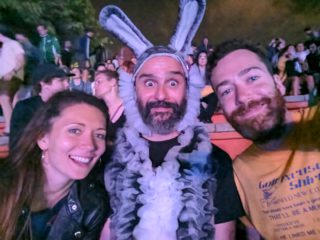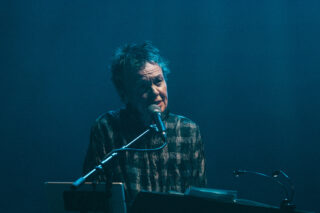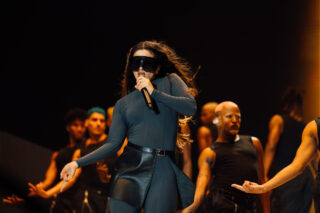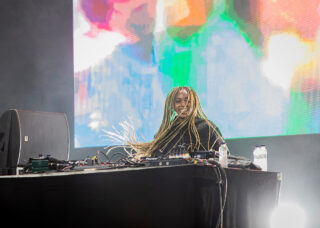When did you know it was a stroke?
“The doctor looked at my brother and said – for me not to see – ‘Stroke.’ It was when she said, ‘You’ve got to spend the night here,’ that I knew it was serious. I knew it was a stroke but I didn’t admit it to myself. I slept but I didn’t dream. I slept, pitch black, and then I woke up and was in the hospital bed barely moving my arm. They tried to give me drugs to get my blood thinner but they didn’t work. It was out of my hands and the doctors’ hands so we just had to wait for 48 hours. There was a chance I would go to Lisbon for surgery and I was able to avoid that. That would mean that they might touch the brain where it’s not supposed to be touched and I could have ended up in a wheelchair.”
What’s it like learning the bass all over again?
“I’m not as good a bass player as I used to be but that’s just practice. It’s rewarding and frustrating. Let’s talk about frustration. I’m not as fast as I used to be. I don’t have the same notion of tempo as I used to. But it’s a question of repetition. It’s not as quick as I would like. For example, slapping. My thumb has taken three months to know how to slap and it’s still not right – not the right force. When the arm gets weakened there are a lot of things that go out of control. But the way I was two months after the incident to the way I am now… it’s a huge difference. The fact that I can look at a video of when I was trying to learn the bass, and the way I am playing now – I’ll get better for sure. But try telling that to the pessimist Filipe!”
What’s your relationship with music since the stroke?
“I was serious about music. I had Spotify on all the time – I can’t have vinyl because I live in a small space but I have my CDs. And then after the stroke it was all gone. I developed this angst, this hatred – almost a hatred – for music. Because I couldn’t play. Now I’m making peace with music.”
How is the documentary coming along?
“I had the idea five months ago. It was a great idea. I was going to go to festivals to raise awareness and I talked to myself, knowing how this new Filipe would have an effect. I was an altruistic person, I was thankful for having a voice. People with global apahasia, they can’t write, they can’t read. I have Broca’s aphasia; I couldn’t speak but could read and write. But anyway, I am still trying to fund it. There is a £30,000 objective and we have raised £5,000. But that’s gone, after going to Tremor, Desertfest, Primavera and Sines festivals to film. There is a lot of filming and editing [to be done].”
Do you have any advice for people who are worried about strokes or who have had strokes?
“36 years old – I didn’t think it could happen to me. And there are a lot of people who think it couldn’t happen to them. The stress we’re putting ourselves under in general, it’s this age of information where everything is new; new this, new that. Facebook, Instagram, ‘likes,’ comparing yourself. Be careful with yourself. Sleep. Go easy on the booze and the drugs. I don’t know if that’s what happened to me. I was drinking a lot, but I was healthy. It can happen. Binge-drinking isn’t good. But since music got me where I am now – I’ve had the stroke performing what I like – music is also to get me out of here. It’s simple. It might take two years, three years, but I’ll persist.”
It’s been almost a year since the stroke. Are you going to celebrate the progress you’ve made in the last 12 months? Not with binge-drinking I assume.
“With two glasses of wine!”
Photos: Courtesy of David Zammitt







